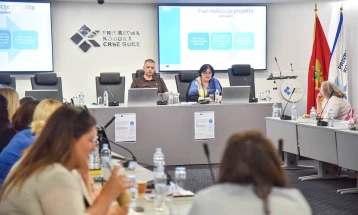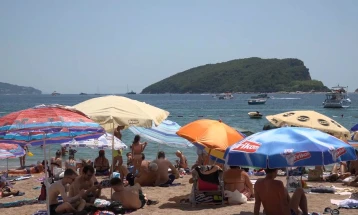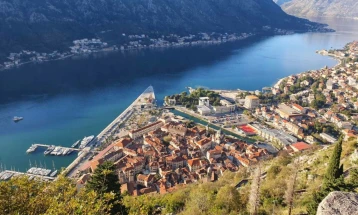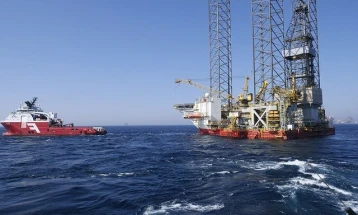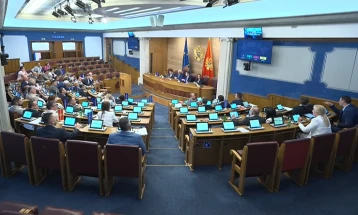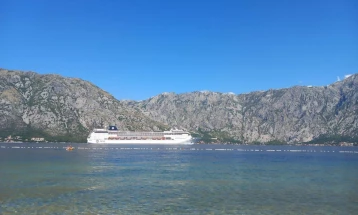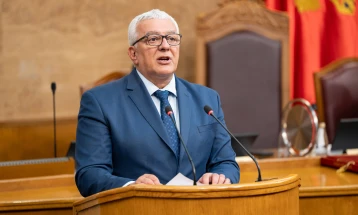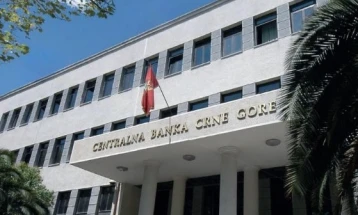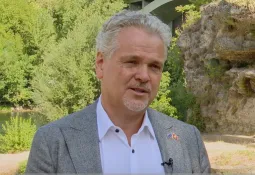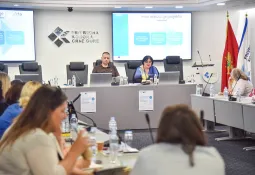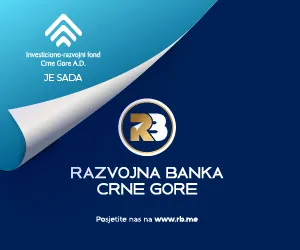KAP expects profit of USD 4.4 million this year
- KAP expects profit of USD 4.4 million this year
- Post By daniloc
- 11:54, 13 februar, 2002

Aluminium Complex from Podgorica would realize profit of USD 4.4 million, after it apportions the money for interest rates, investments and solution of the problem of technological surplus, but it would, in the first place, depend on the price of aluminium, said director, Mihailo Banjevic.
He said at today#s celebration of the Assembly of Shareholders organized on the occasion of the 31st anniversary of the company, that production price of aluminium was planned on more than USD 1,300 per ton, and added that about 1.8 million kWh of electricity would be spent.
"We shall produce 115,000 tons of aluminium if there would be no problems with electricity supplies, as it was in January. We have planned the income of USD 167 million, with conservative approach to average stock-market price of aluminium above USD 1,400," announced Banjevic.
He said that KAP would invest USD 5 million in crane tracks and cranes, automatic regulation of electricity in Electrolysis, third boiler in Energetics and saw in the Foundry, as well as in part of the mills and furnace in the Alumina.
He said that the company considered radical modernisation that would enable expansion of capacities, stability and reliability of the production process, as well as reduction of expenses.
"For the state, modernisation would mean increase of export and improvement of the export balance as well as reduction of harmful substances, while workers would have improved working ambient and easier operation. The Government should state when the privatisation would begin, because it can significantly influence passing of decisions as regards modernisation," said Banjevic.
He reminded that aluminium made more than 90 percents of the total export of Montenegro and concluded that KAP was the main factor of foreign currency influx in the state.
Banjevic expects favourable results of the recently announced tender for sale of processing plants that would improve their use and create conditions for development of small and medium companies in the field of processing.
"Reconstruction of the plant for production of anodes, worth USD 15 million, is expected soon so KAP would get high quality anodes which would have good effect on aluminium production," said Banjevic.
He claims that the Government and the Electric-Power Industry of Montenegro have to provide adequate quantities of electricity because if it did not happen, all plans of KAP would become unreachable and unreal.
"We shall work together on a new contract in order to provide adequate quantities of energy for the next two years, at acceptable price," said Banjevic.
He is of the opinion that stabilisation of KAP should be continued this year, in order to make it a modern European company.
Premier Filip Vujanovic said that KAP was the basis of development of Montenegro, which was why it could count on Government#s support in the future.
During his visit to processing plants of the KAP, Vujanovic said that public had not had adequate understanding as regards investments into KAP at the time when the company was on the verge.
"The Complex has become a powerful company which is the basis of development of Montenegro. That is why it would have the Government#s support in the future, in order to create conditions for restoration and increase of production," said Vujanovic.
He said that results of investments into this company had become obvious last year.
"Aluminium Complex realized maximal production last year and high level of investments in comparison with the installed capacity. The company invested into ecological protection and it would allot more money for this purpose next year," said Vujanovic.
Minister of economy, Darko Uskokovic said that the KAP was an example of the company in transition.
"This company, on its 31st anniversary is stable on its feet and it competes at the world market with price and quality of products. In the last few years, the Government has succeeded in raising this company, from the state of chronic lack of financial means and use of only 20 percents of installed capacities, to the state of full operational ability, financial sustainability and confidence between workers and management," said Uskokovic.
